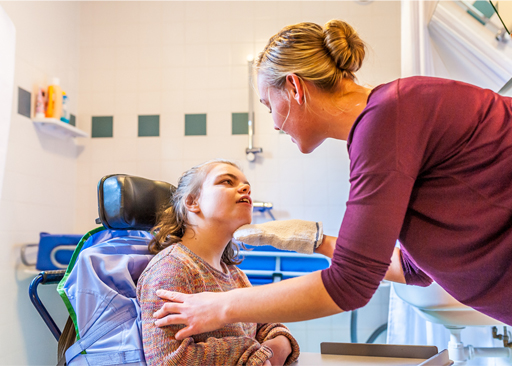6 When things go well
Sometimes ‘reasonable adjustments’ can make a huge difference. Read the examples below of how ‘reasonable adjustments’ have benefited William, Margaret and Mary.
William
William was diagnosed with coeliac disease. His dietician found out where he liked to buy his food, and went there to take photos of the foods it was OK for him to eat. She used the photos to prepare a laminated sheet for him to take shopping.
Margaret
Margaret’s GP noticed that she was calmer when her key worker was with her. He asked the receptionist to find out when the key worker was on duty before making the appointment for her Annual Health Check.
Mary
Mary’s learning disability nurse visited her before she went into hospital, to tell her what would happen and find out how she liked to be supported. The nurse then shared this information with the ward staff. She visited Mary during her stay to find out how things were going.

There is a long way to go before it is possible to be confident that people with learning disabilities are no longer disadvantaged in accessing high quality healthcare. But a start has been made – we know there is a problem and we know what needs to be done.
